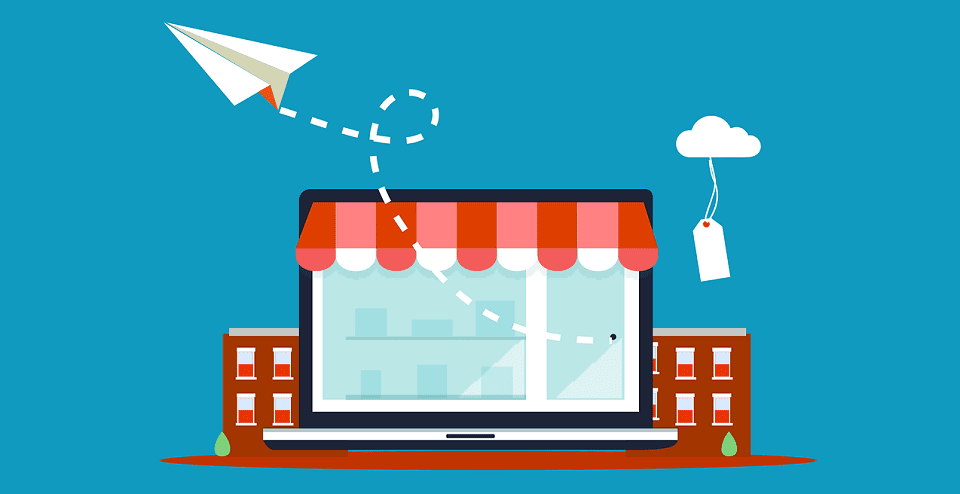Ecommerce has changed dramatically in the last decade.
It has become much more competitive, as major players like Amazon and Walmart have started selling online.
Marketers need to keep up with the latest trends to stay ahead of the competition and achieve the best possible results.
Investing in an ecommerce business can lead to a huge payoff, but it’s also somewhat risky.
In fact, over 90% of all new ecommerce vendors fail in their first year.
Why? Below are some of the most important factors to keep in mind before you commit to investing in an ecommerce venture.
The Product
It goes without saying that the product itself is the most important thing for any ecommerce vendor. Your business will only go as far as your product takes you.
You’ll need to do some research in order to fully understand your idea’s potential.
Start by using the Google Keyword Planner tool (or a premium keyword tool if you have access to one), so you can gauge online interest in your product category.
The more people there are who are already searching for items like yours, the more likely you will be able to find an audience.
Customer personas based on behavioral or demographic information is another important part of the research process.
Once you truly “know” your customers, you will be able to identify the right marketing channels and develop a unique value proposition that aligns with their interests.
And of course, strong customer relationships are critical for promoting brand loyalty.
Competitive Research
The existing businesses in your space represent another top concern when considering an ecommerce investment.
By researching existing players, you will get an idea of how saturated the market is, as well as what competitors are doing to succeed in the market.
Begin by looking for companies around the same size as your target business, and figure out which are the most popular.
Try to narrow the gap on any competitive advantages. Come up with a unique offering or marketing model that sets you apart from other businesses in your field.
It can be tough to compete against businesses with more knowledge about the industry. You’re more likely to succeed within an area that you already have experience.
This is especially true if you have relationships with people in the field who can offer opportunities that aren’t available to your competition.
Product Sourcing
Low pricing is one of the best ways to set your business apart.
First, start with smart sourcing practices that allow you to cut costs without sacrificing quality.
You should be able to achieve competitive pricing. It’s extremely hard to sell a comparable product for more money than the competition does.
If you don’t think you can match the pricing of larger competitors, you’ll need to find another unique value that differentiates your business from other brands.
People will only pay more for your products if they believe they’re getting something extra for their money.
In some cases, the difference will come down to your story, how you engage with customers, and any other perks you offer that competitors do not.
Marketing Practices
Even the best products won’t succeed without visibility. This is why a solid marketing strategy is so critical to the long-term outlook of any ecommerce business.
Ecommerce vendors should be using every available channel to promote their brand, including Facebook, email, Instagram, and more.
And yes, email still matters. But how you deploy it can also make a difference in conversion rates and efficiency.
Marketing automation software allows you to streamline your approach to ecommerce marketing and create workflows that seamlessly segment and target different subgroups within your audience.
It can put you ahead of the competition and help you work smarter, rather than harder.
Many marketing solutions also provide analytic tools. This will enable you to monitor your results and make more informed decisions.
Consistently evaluate your successes and failures, By doing so, you’ll find it easy to identify trends and adjust to customer interests.
Launch Plan
Every new ecommerce business needs a clear, detailed plan for its first few months.
Start with relatively low stock in inventory and a small set of products. You can expand later if necessary.
You never want to spend money on dead stock, when it could be used more effectively for something else.
You’ll be able to make more informed growth-related decisions once you’ve had a chance to see what sells and what isn’t worth focusing on.
This information allows you to sell a higher volume and a wider range of products without making the errors that lead to unsold inventory.
A strong business plan can also help you convince investors of your potential. It’s very important to take this step seriously.
Include roughly 15-to-20 pages of information on your company’s ideas and how you plan to differentiate yourself.
Most business plans cover roadmaps for things like finances, logistics, and marketing, along with data about the market and any existing competitors.
Business plans should start with a one-page executive summary that provides a brief overview of the most important ideas.
Summary
Ecommerce can be an incredibly lucrative opportunity. However, it’s important to do some research so you can be confident in your investment.
These are some of the most important factors to keep in mind before investing in an ecommerce vendor or launching your own online store.
Feature Image Credit: CC 0; Public Domain, sourced from pixabay.com.
Disclaimer: The views and opinions stated in this post are that of the author, and Return On Now may or may not agree with any or all of the commentary.
Kate Lynch
Latest posts by Kate Lynch (see all)
- What to Consider Before Investing in an Ecommerce Business - August 15, 2019





